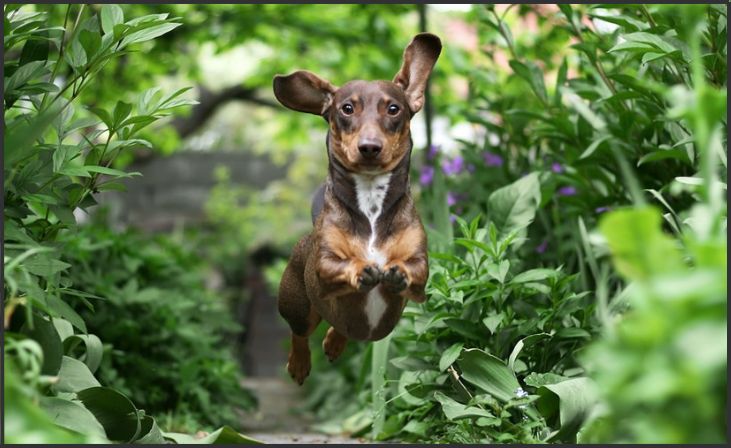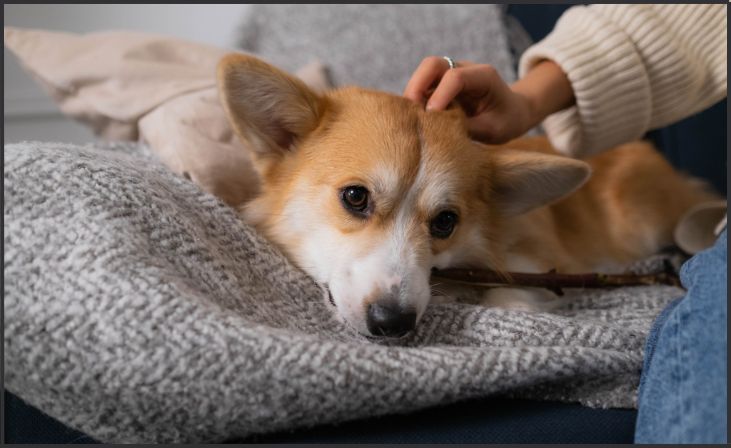Dogs, our loyal and loving companions, can also experience anxiety and stress. Whether it’s due to separation anxiety, thunderstorms, fireworks, or other triggers, it’s challenging to see our furry friends in distress. While consulting with a veterinarian is always a wise choice for severe cases, there are several natural remedies and strategies you can implement to help alleviate your dog’s anxiety and stress. In this comprehensive guide, we will explore various holistic approaches that can make a significant difference in your dog’s overall well-being and happiness.
Understanding Canine Anxiety and Stress

Before we delve into the natural remedies, it’s essential to grasp the signs and causes of anxiety and stress in dogs. Understanding the root of the problem is the first step in finding effective solutions.
Signs of Anxiety and Stress
- Excessive Panting: Rapid and shallow breathing, even when it’s not hot.
- Trembling or Shivering: Uncontrollable shaking, especially during thunderstorms or fireworks.
- Destructive Behavior: Chewing furniture, digging, or scratching doors when left alone.
- Excessive Barking or Whining: Vocalization out of the ordinary, often accompanied by restlessness.
- Loss of Appetite: Sudden disinterest in food.
- Potty Accidents: House-trained dogs may have accidents indoors due to anxiety.
- Hiding: Seeking refuge in hidden spots, like closets or under furniture.
Common Causes of Anxiety and Stress
- Separation Anxiety: Fear of being left alone.
- Loud Noises: Thunderstorms, fireworks, or construction noises.
- New Environments: Moving to a new home or unfamiliar places.
- Social Anxiety: Fear or anxiety around other dogs or people.
- Medical Issues: Pain or discomfort due to an illness or injury.
Now that we’ve laid the foundation, let’s explore various natural remedies and strategies to help soothe your dog’s anxiety and stress.
1. Herbal Remedies

Herbal remedies can be effective in alleviating dog anxiety and stress. People know that chamomile and valerian root can help calm you down. Chamomile can be brewed into a tea and added to your dog’s water or food, while valerian root is available in supplement form. These herbs work by promoting relaxation and reducing nervousness in dogs. However, it’s crucial to consult with a veterinarian before introducing any herbal remedies to ensure they are safe for your specific dog.
2. Lavender Aromatherapy
Lavender is well-known for its calming scent, and aromatherapy with lavender essential oil can be beneficial for dogs experiencing anxiety. You can diffuse lavender oil in the air or dilute it with a carrier oil and apply a small amount to your dog’s collar. This natural remedy helps create a soothing environment, promoting relaxation and reducing stress levels in your canine companion.
Also Read: Toy Dog Breeds
3. Regular Exercise

Physical activity is essential for maintaining a dog’s mental and emotional well-being. Regular exercise helps release excess energy and reduces anxiety. Ensure your dog gets daily walks, playtime, and engaging activities. This not only promotes physical health but also stimulates the release of endorphins, which are natural mood enhancers that can help alleviate stress and anxiety in dogs.
4. Thundershirt
A Thundershirt is a snug-fitting garment designed to provide gentle pressure to a dog’s body. This constant pressure can have a calming effect, similar to swaddling a baby. Thundershirts are particularly effective for dogs that experience anxiety during thunderstorms, fireworks, or other stressful situations. The pressure from the shirt helps reduce anxiety by creating a sense of security for the dog.
5. Music Therapy

Music can have a soothing effect on dogs and help alleviate anxiety. There are specially curated playlists and albums designed for dogs, featuring calming music and sounds. Playing soft classical music or nature sounds can create a serene environment, reducing stress levels for your pet. Experiment with different types of music to find what works best for your dog’s individual preferences.
6. Calming Treats
Calming treats formulated with natural ingredients like chamomile, ginger, or melatonin can be an effective way to ease dog anxiety. These treats are often designed to be tasty and appealing to dogs while providing calming benefits. However, it’s crucial to choose treats with ingredients that are safe for dogs and to follow recommended serving sizes to avoid potential adverse effects.
7. Massage and Tactile Comfort

Gentle massage and tactile comfort can be powerful tools in reducing anxiety in dogs. Petting, stroking, or massaging your dog can create a sense of security and relaxation. Focus on areas where your dog enjoys being touched, and pay attention to their body language to ensure you are providing comfort without causing any discomfort.
8. Routine and Predictability
Dogs thrive on routine and predictability. Establishing a consistent daily schedule for feeding, walks, playtime, and rest can help reduce anxiety by providing a sense of structure and security. Sudden changes in routine or environment can be stressful for dogs, so maintaining a stable daily routine is essential for their mental well-being.
Also Read: Dog-Friendly Plants for Your Garden
9. Behavior Training and Desensitization
Behavior training and desensitization techniques can be valuable in addressing specific anxiety triggers. Identify the situations or stimuli that cause anxiety for your dog and gradually expose them to these triggers in a controlled and positive manner. Reward-based training can help create positive associations and reduce anxiety over time.
10. Professional Guidance

If your dog’s anxiety persists or worsens, seeking professional guidance from a veterinarian or a certified dog behaviorist is essential. They can assess the specific causes of your dog’s anxiety and provide personalized recommendations. In some cases, prescription medications may be necessary, and a professional can guide you through the appropriate options based on your dog’s individual needs. Always consult with a vet before starting any new treatment plan for your dog’s anxiety.
By combining these natural remedies and paying attention to your dog’s individual needs, you can create a holistic approach to managing anxiety and stress, promoting a happier and healthier life for your furry friend.
Conclusion
Caring for a dog with anxiety or stress requires patience and understanding. The same treatment that helps one dog may not help another. It’s essential to observe your dog’s behavior and consult with a veterinarian to determine the best approach. Remember that natural remedies can be a valuable addition to your dog’s care plan, but they should complement professional guidance when necessary.
By implementing these natural remedies and strategies, you can create a supportive and nurturing environment for your beloved furry friend. Your dedication to their well-being will undoubtedly lead to a happier and less anxious dog, strengthening the bond between you and your canine companion.
FAQs
Herbal remedies can be safe for many dogs, but it’s crucial to consult with your veterinarian before introducing any new supplements. Dogs may react differently to herbs, and individual factors such as size, age, and health conditions can impact the appropriate dosage. Your vet can provide personalized advice, ensuring that the chosen herbal remedy is safe for your specific dog. They may also recommend starting with a lower dosage and monitoring your dog’s response before making any adjustments.
While lavender is known for its calming properties, other essential oils can also be used for aromatherapy in dogs. However, it’s essential to choose oils that are safe for pets, as some essential oils can be toxic. Oils such as chamomile, frankincense, and cedarwood are generally considered safe when properly diluted. Always use a carrier oil and consult with your veterinarian before using any essential oils on or around your dog. Additionally, closely observe your dog for any signs of irritation or discomfort during aromatherapy sessions.

